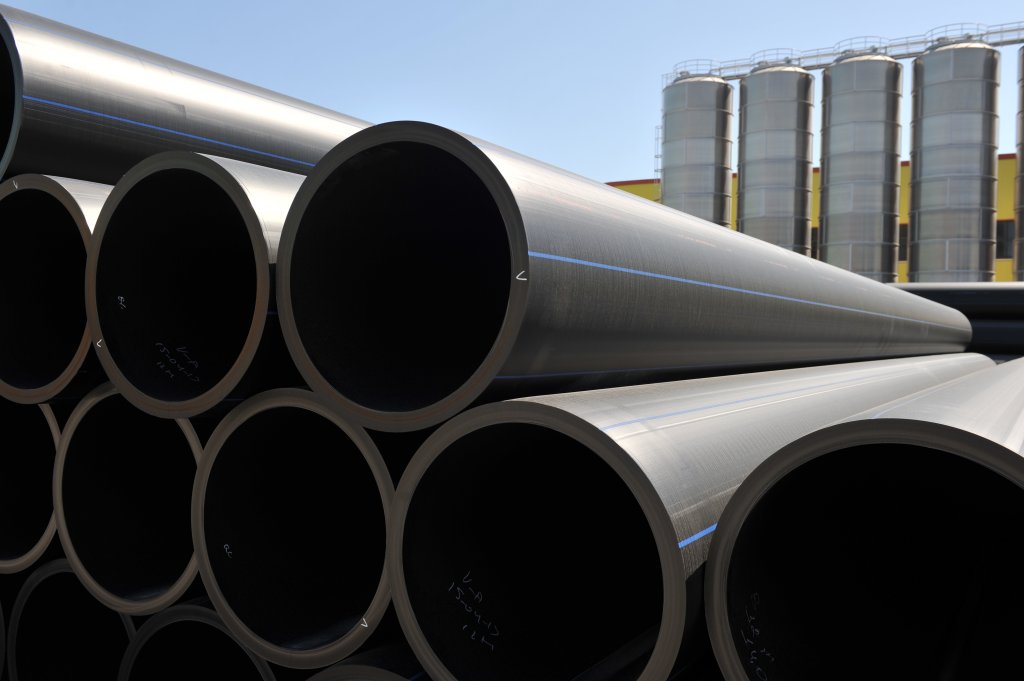Why Pipe Supplier American Plastics Midland Is the Top Choice for Contractors
Recognizing the Key Perks of HDPE Pipeline for Water and Wastewater Management
The usage of HDPE pipeline in water and wastewater management offers numerous benefits that warrant factor to consider. Its exceptional resilience and long life expectancy make it a preferred selection for several jobs. In addition, the material's resistance to rust and chemical damages boosts its dependability in various settings. Nevertheless, the benefits expand past just durability and resistance. Exploring its cost-effectiveness and ecological influence discloses a lot more compelling reasons for its prevalent fostering in modern framework
Outstanding Toughness and Durability

HDPE pipe stands apart for its remarkable durability and longevity, making it a favored option in water monitoring systems. Created from high-density polyethylene, these pipelines can hold up against considerable pressure and stress, making certain reputable performance with time. Their robust nature enables them to sustain extreme ecological problems, including temperature level fluctuations and soil movements, which can trigger various other products to fail.
The life expectancy of HDPE pipes typically exceeds 50 years, offering a cost-effective solution for communities and industries alike. Additionally, the product's light-weight homes simplify setup, lowering labor prices and timeframes. This toughness lessens the requirement for constant fixings or substitutes, additionally improving its financial appeal.
In water monitoring applications, the integrity of HDPE pipelines suggests fewer interruptions and improved solution connection, making them indispensable to lasting infrastructure advancement. The mix of durability and longevity strengthens HDPE's duty as a keystone in reliable water administration remedies.

Resistance to Rust and Chemical Damages
While numerous products catch rust and chemical damage with time, HDPE pipes exhibit exceptional resistance, making them perfect for numerous water monitoring applications. This resilience comes from the molecular structure of high-density polyethylene, which is naturally non-reactive and does not corrode like metals or weaken from direct exposure to severe chemicals. As a result, HDPE is highly effective in environments with hostile materials, such as wastewater systems that might contain acids, bases, and natural solvents.
In addition, HDPE pipelines can endure ecological variables such as dirt level of acidity and saline problems, better enhancing their viability for diverse applications (American Plastics HDPE Pipe for Oilfield). Their capacity to maintain structural honesty over time decreases the threat of leaks and failures, which is important in guaranteeing the security and integrity of water distribution and wastewater management systems. Subsequently, the resistance to deterioration and chemical damage substantially contributes to the general performance and longevity of HDPE piping services
Cost-Effectiveness and Financial Benefits
When considering the economic implications of water administration systems, the cost-effectiveness of HDPE pipelines becomes obvious. These pipelines supply lower setup and upkeep expenses contrasted to standard products like steel or concrete. Their light-weight nature streamlines transport and installation, resulting in decreased labor costs. In addition, HDPE pipes display a long life expectancy, usually exceeding half a century, which translates to fewer replacements and lasting financial savings.
Furthermore, the resistance of HDPE to corrosion and chemical damages lessens the demand for costly repair work and replacements. The pipelines also support effective water circulation, lowering power costs linked with pumping systems. By mitigating leakages and water loss, HDPE pipelines add to considerable financial benefits for communities and sectors alike. Generally, the first investment in HDPE piping can yield significant financial returns over the life-span of the water administration read the article system, making it a sensible choice for sustainable infrastructure advancement.
Environmental Sustainability and Minimized Influence

Convenience and Flexibility in Installation
As a result of their special residential or commercial properties, HDPE pipes supply amazing versatility and versatility in installation, making them appropriate for a wide variety of applications. Their light-weight nature enables simpler handling and transport, decreasing labor prices and installation time. HDPE pipes can be bent and shaped to fit Read Full Report different surfaces and project needs, which is particularly valuable in challenging settings.
In addition, their resistance to corrosion and chemical damage permits for installation in varied setups without the demand for specialized protective finishings. The capacity to fuse joints produces a continual, leak-free system, improving the total honesty and reliability of the setup. HDPE's flexibility likewise fits ground motion, decreasing the risk of damages in areas prone to shifting soil. On the whole, these qualities make HDPE pipelines not only versatile but also a recommended choice for water and wastewater monitoring systems.
Often Asked Inquiries
How Does HDPE Pipeline Contrast to PVC in Water Management Applications?
HDPE pipeline offers remarkable flexibility, resistance to rust, and toughness contrasted to PVC. Its lighter weight helps with simpler installation, while its lengthy life expectancy reduces replacement expenses, making HDPE a favored choice in water monitoring applications.
What Is the Life-span of HDPE Piping Under Typical Conditions?
Under typical problems, HDPE pipelines can have a life expectancy varying from 50 to 100 years. Their sturdiness and resistance to corrosion contribute to their long-lasting performance in numerous applications, making them a trusted option for facilities.
Are HDPE Piping Recyclable After Their Life Span?
Yes, HDPE pipes are recyclable after their life span. American Plastics HDPE Pipe for Oilfield. They can be refined and repurposed into brand-new products, greatly minimizing environmental influence and promoting sustainability within the sector, making them an environment-friendly option for piping remedies
What Is the Setup Process for HDPE Water Lines?
The installation procedure for HDPE pipes includes website preparation, trenching, pipeline combination or mechanical signing up with, backfilling, and pressure testing. Correct methods guarantee a long lasting and efficient system for transporting water and wastewater properly.
Can HDPE Pipeline Be Used for Both Safe And Clean and Non-Potable Water Solutions?
Yes, HDPE pipelines can be used navigate to these guys for both potable and non-potable water systems. Their adaptability, toughness, and resistance to rust make them suitable for numerous applications, ensuring risk-free and effective transport of water in various contexts.